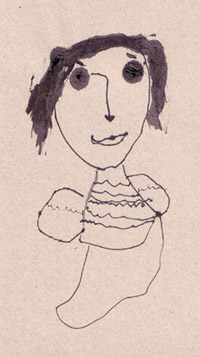LAYLA
ABDELRAHIM'S
HOME PAGE
In Defence of Charles Perrault:
Beyond the Feminist Perspective of Jack (David) Zipes & his
Associates
Analysis of the construction of the theoretical body on children’s
literary can divulge the institutionalization of political agenda as
culture. This, I argue, influences the way in which we read, interpret,
translate and transmit children’s literature. More important, however,
theory building is a political battle, which despite its claim to renew
and revolutionize “meaning,” remains faithful to the status quo in
social relations.
Jack Zipes, one of the most influential theorists on children’s
literary theory in North America, began his career by critiquing
Western European fairy tales from an American feminist perspective. In
his critique of Charles Perrault, I find parallels between the two
writers and my own examination of Zipes’ analysis of Perrault’s tales
demonstrates that contemporary theory on children’s literature is being
built on problematic readings threatened by its own political
agenda.
The importance of this work lies in the fact that there is a strong
link between literary theory and how audience “reads” the cultural
heritage we attempt to transmit to future generations. The
globalization project of the US has left its mark on the way
contemporary theorists and literary philosophers read children’s
literature. This project ignores the complexity and the nuances that
the thousands of years of folk traditions had taught authors such as
Perrault. Despite Perrault’s problems with regard to his own
“monarchistic project”, his work is diluted in folk ambiguities, and
Zipes’ reading denies Perrault this complexity and hence denies our
children alternatives.
2004-2005
